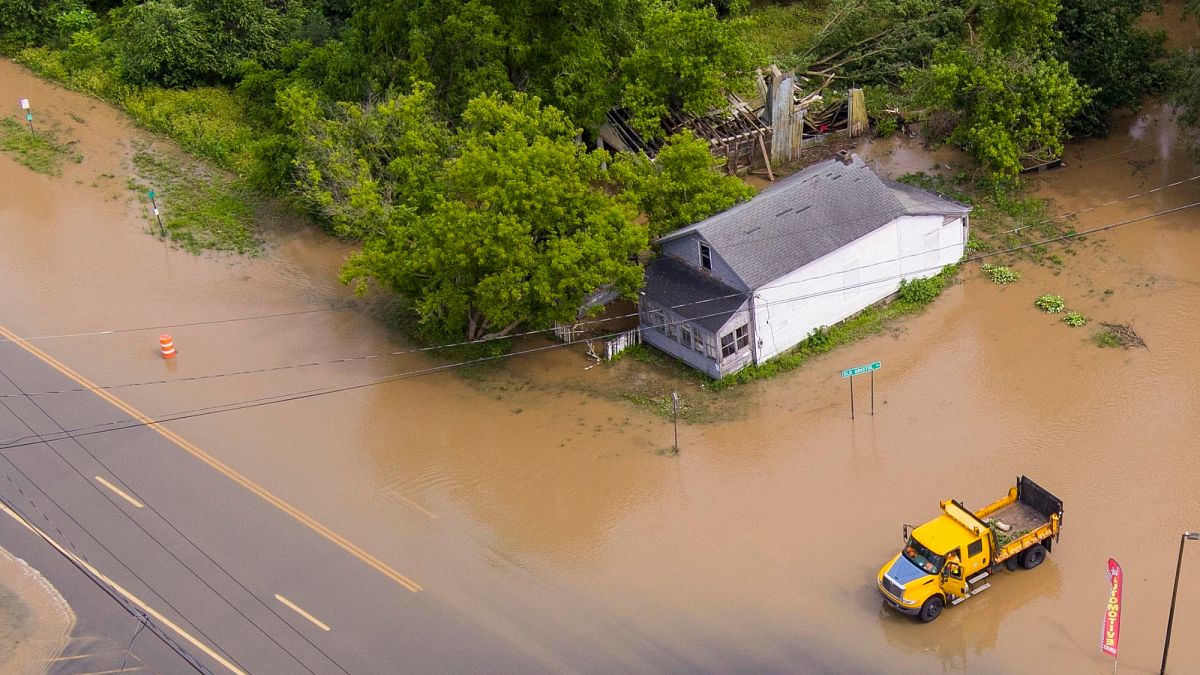

In recent days, the world has faced a variety of weather and environmental challenges, each bringing its unique impact on communities. From heavy rains in the Northeastern United States to changes in Argentina’s winter climate, and debates around environmental decisions in the UK, these events encourage a moment of reflection on our relationship with nature.
Beginning with the northeastern United States, severe weather conditions enveloped New York and New Jersey, as heavy rains and flash floods swept across the region on Monday night. The inclement weather significantly disrupted travel across these states, compelling officials to declare states of emergency in several areas. Despite these challenges, local communities have shown resilience, banding together to navigate through these unexpected conditions and ensuring safety. Emergency responders have been tirelessly working to assist those affected, demonstrating the importance of preparedness and community support during times of natural upheaval.
As attention turns to Canada, a different kind of atmospheric influence is unfolding. Legislators in parts of the United States are voicing concerns over the persistent smoke drifting from Canadian wildfires. These Republican lawmakers have expressed their grievances to Canada’s ambassador, citing the ongoing discomfort caused by these smoky conditions. The letter sent highlights the challenges posed by wildfire smoke, which adds a layer of complexity to summer air quality issues. It serves as a reminder of the interconnected nature of environmental phenomena, transcending borders and requiring collective efforts to address root causes such as the rise in global temperatures.
Meanwhile, in the southern hemisphere, Argentina is experiencing an unusual weather event for its winter season. A wave of warm air has descended upon the northern and central regions, bringing temperatures that are notably above average. Cities like Rosario and Buenos Aires are witnessing temperatures that soar up to 10 degrees Celsius above normal. However, this anomaly is expected to be short-lived as a cold front is predicted to move in by Wednesday. This temporary warmth offers a moment to relish in nature’s unpredictability, while also prompting discussions on climate patterns and their influences on local weather systems.
Turning to the United Kingdom, environmental debates are taking center stage with the decision surrounding the Queensbury Tunnel in Yorkshire. Known as a historic railway line, there are plans underway to fill this disused tunnel with concrete. This decision has prompted campaigners to advocate for an alternative vision: transforming the tunnel into a subterranean cycle and pedestrian path. The government had recently allocated funds for its permanent closure, despite previous investments made to preserve the structure. Campaigners argue that converting the tunnel could offer a sustainable and eco-friendly recreational space, reflecting a broader movement towards preserving historical sites while promoting green transportation.
Reflecting on these unfolding events, it is evident that weather and environmental conditions often present challenges that demand adaptability and thoughtful responses. As communities around the world navigate these changes, there is a shared opportunity to engage in meaningful discussions centered on sustainability and our collective responsibilities. By working together, individuals and governments alike can explore solutions that honor both the environment and our shared history, paving the way towards a future where human ingenuity and nature coexist harmoniously.
Source: {link}
